|
The US and Russia have both announced they are withdrawing from a nuclear treaty they signed in the 1980s, setting off speculation about a new global nuclear arms race. But what is this particular treaty about and does it matter that it's falling apart? International relations scholar Jeffrey Fields, who used to be a senior advisor at the U.S. Department of Defense, outlines why the treaty was successful for a time and why the fact that it applies to only two of many nuclear powers is what will likely lead to its demise. Ramesh Thakur, meanwhile, explains why the collapse of the treaty means the world must pay more attention to arms control.
|
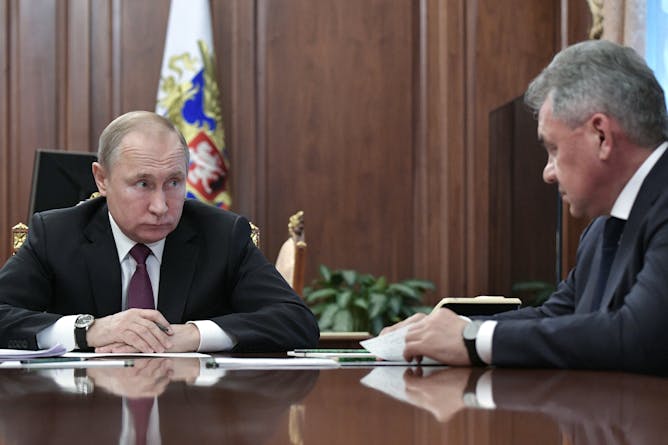
Russian President Vladimir Putin, left, speaks to Defense Minister Sergei Shoigu.
Alexei Nikolsky, Sputnik, Kremlin Pool Photo via AP
Jeffrey Fields, University of Southern California – Dornsife College of Letters, Arts and Sciences
A Cold War era treaty helped dismantle more than 2,500 missiles between the US and Russia.
|
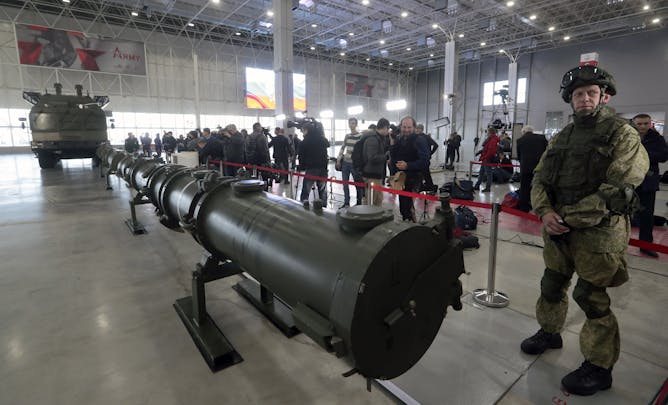
Russia claims its controversial Iskander M launcher doesn’t violate the INF treaty.
SERGEI CHIRIKOV/AAP
Ramesh Thakur, Australian National University
The US has withdrawn from a major arms control treaty with Russia, and Russia followed suit. So, what was the treaty, and what happens now?
|
Science + Technology
|
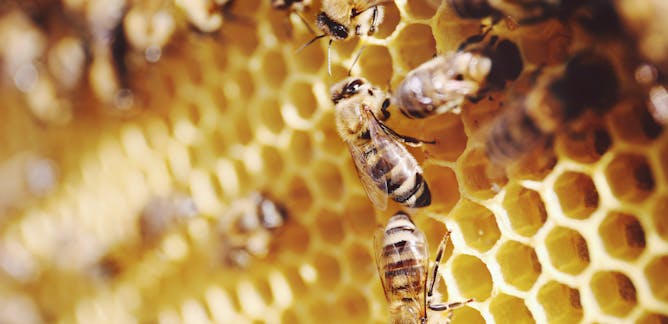
Scarlett Howard, RMIT University; Adrian Dyer, RMIT University; Jair Garcia, RMIT University
Bee brains contain less than one million neurons. Despite this, new research shows the honeybee can use symbols to perform basic maths, including addition and subtraction.
| |
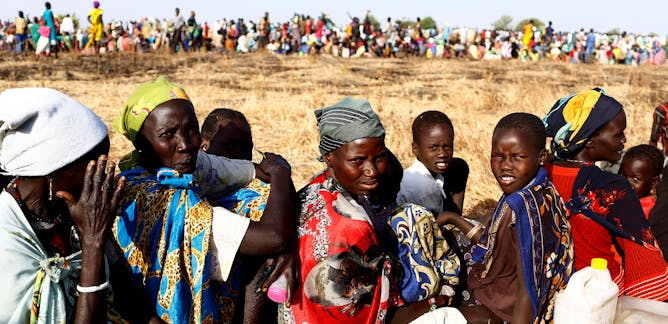
Walter Suza, Iowa State University
Predictions suggest that Africa will suffer dramatic losses of crops and productive land as the climate warms. Perhaps adopting GM crops designed to tolerate stress can save the continent from famine.
|
|
|
Politics + Society
|
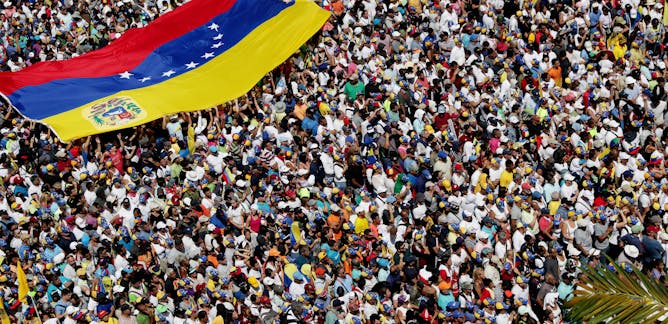
Thomas Purcell, Leeds Beckett University
Inflation is soaring, millions are fleeing – and two politicians are seeking to lead. It's an impossible choice for an impoverished people.
| |
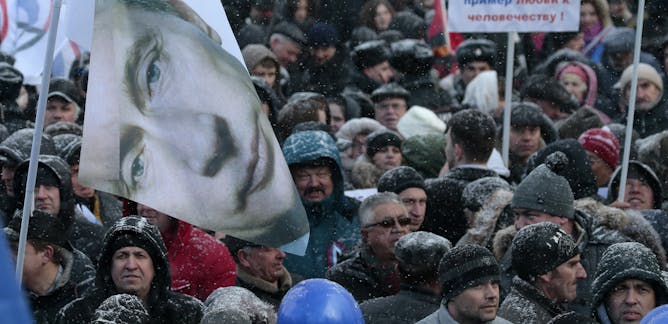
Richard Carney, China Europe International Business School
Almost one-third of countries around the world are authoritarian regimes with the trappings of democracy. Their bad behavior poses a threat to real democracies, as the United States recently learned.
|
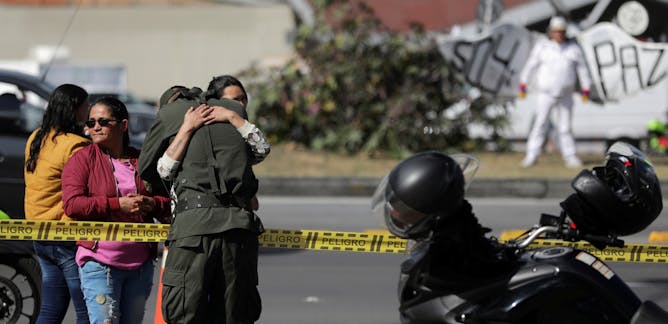
Alexander L Fattal, Pennsylvania State University
A 2016 accord with the FARC guerrillas was supposed to end Colombia's 52-year civil war. But a deadly car bomb in Bogotá shows that armed insurgents still threaten the South American country.
| |

Dr Admire Mare, Namibia University of Science and Technology; Dumisani Moyo, University of Johannesburg
African newsrooms are using media analytics to study their audiences but there's a downside.
|
|
|